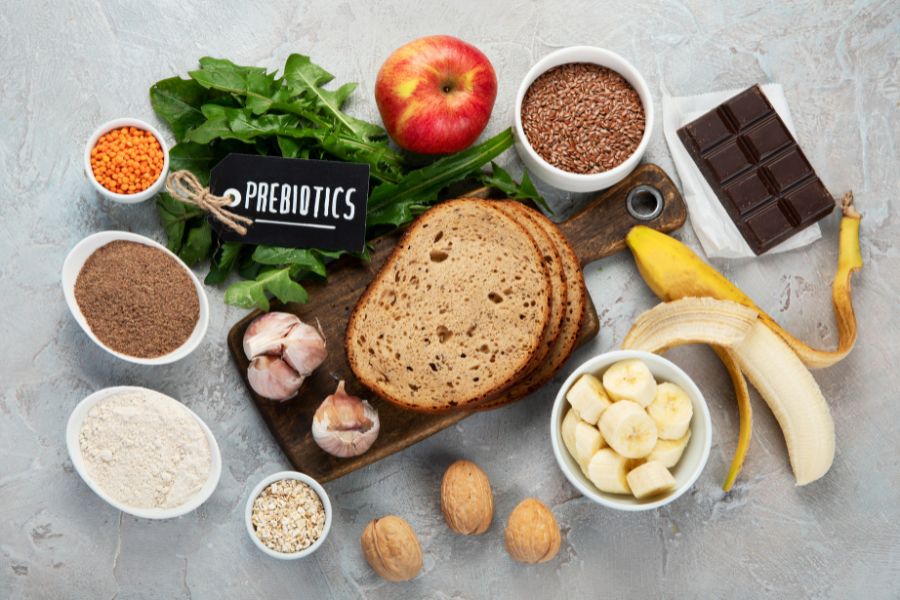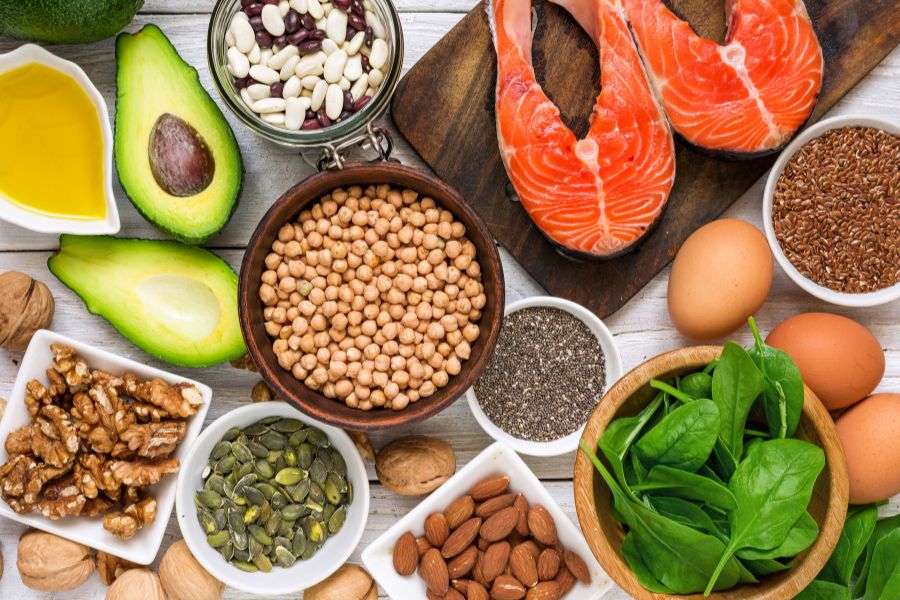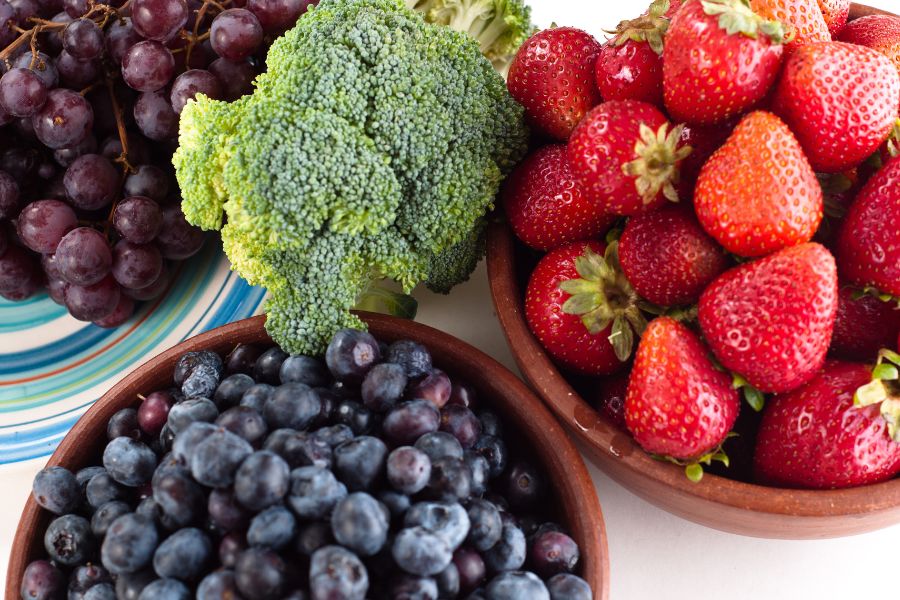Functional foods are a growing trend in health and wellness, offering benefits beyond basic nutrition. But what exactly are they, and why should you include them in your diet? In this blog post, we’ll explore what functional foods are, the different types, and how they can improve your health.
What Are Functional Foods?
Functional foods provide more than just essential nutrients like vitamins and minerals. They contain bioactive compounds that boost health, reduce the risk of chronic diseases, and promote overall well-being.
These foods can be either natural or fortified. Natural functional foods include fruits, vegetables, nuts, seeds, and fish, which are packed with antioxidants, omega-3 fatty acids, fiber, and probiotics. Fortified functional foods have added nutrients, like calcium-enriched orange juice or probiotic-enhanced yogurt.
Types of Functional Foods
Functional foods can be grouped based on their nutritional benefits:
Probiotic-Rich Foods

Yogurt, kefir, and fermented vegetables are rich in probiotics. These live bacteria support gut health, balance the microbiome, and aid digestion. (Nutrients)
Prebiotic-Rich Foods

Prebiotic foods play a critical role in gut health, making them an essential category of functional foods. Prebiotics are types of non-digestible fiber that feed the beneficial bacteria in your gut, helping them grow and thrive. Unlike probiotics, which introduce live bacteria into your system, prebiotics serve as food for the existing good bacteria in your gut. This makes them just as important for maintaining a balanced, healthy microbiome. (Foods)
Omega-3 Fatty Acid-Rich Foods

Fatty fish like salmon and plant-based foods like chia seeds, are loaded with omega-3 fatty acids. These fats are essential for heart health, brain function, and reducing inflammation.
Fiber-Rich Foods

Whole grains, legumes, and vegetables contain high levels of fiber. Fiber promotes digestion, stabilizes blood sugar, and helps maintain a healthy weight.
Antioxidant-Rich Foods

Berries, nuts, dark chocolate, and green tea are excellent sources of antioxidants. These compounds neutralize free radicals, protecting cells from damage and aging.
Health Benefits of Functional Foods
Functional foods are more than a marketing trend. They offer real health benefits, such as:
Improved Digestion
Probiotics and fiber improve digestion and support a healthy gut microbiome. They can also help prevent issues like irritable bowel syndrome (IBS) and constipation.
Heart Health
Omega-3 fatty acids, found in foods like fish, flaxseeds, and walnuts, lower blood pressure and triglycerides. They also reduce the risk of heart disease.
Enhanced Immune Function
Garlic, ginger, and mushrooms are functional foods that contain immune-boosting compounds. They help your body fight infections more effectively.
Weight Management
Fiber-rich foods like whole grains, vegetables, and fruits promote fullness. This makes it easier to control hunger and manage your weight.
Reduced Risk of Chronic Diseases
Antioxidants in foods like berries and nuts lower the risk of diseases like cancer, diabetes, and Alzheimer’s. They do this by reducing oxidative stress and inflammation in the body.
How to Add Functional Foods to Your Diet
Incorporating functional foods into your diet is easier than you think. Here are some simple tips:
- Start with Breakfast: Replace sugary cereals with whole grains. Add chia or flax seeds to smoothies, and top your yogurt with antioxidant-rich berries.
- Add Fermented Foods: Include sauerkraut, kimchi, and kefir in your meals to boost probiotic intake and improve gut health.
- Snack Smart: Choose nutrient-dense snacks like nuts, seeds, or dark chocolate instead of processed options.
- Eat the Rainbow: Fill your plate with colorful fruits and vegetables to ensure you’re getting a wide range of nutrients.
- Include Fatty Fish or Vegan Sources of Omega 3 Fatty Acids: Try to eat fatty fish like wild-caught salmon twice a week to benefit from omega-3 fatty acids or add hemp seeds, walnuts, or flaxseeds to salads or smoothies.
The Future of Functional Foods
Research continues to uncover the link between diet and health, making functional foods a key part of preventive medicine. The demand for foods that offer more than basic nutrition is driving innovation in fortified products that enhance health.
Keep In Mind
Functional foods do more than provide nourishment—they support overall health and well-being. By adding fiber, omega-3s, and immune-boosting foods to your diet, you can take control of your long-term health and wellness.

